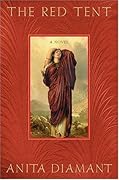The Husbands, by Chandler Baker
Nora is a wife, a mother and an attorney. All at the same time. Her husband Hayden tries to be helpful, but Nora us finding herself collapsing under the weight of trying to do it all, while coming up for a partnership review this year in her law firm. Not to mention, she has another baby on the way.

Their home is too cramped, so they are trying to find a new one before baby #2 arrives. This leads Nora and Hayden to the perfect neighborhood. The homes are spacious and stunning and even better, the neighbors are amazing. All the women are professionals, and their husbands all help so much with household life! Nora is reluctant to admit she’s jealous. She loves Hayden, and he does try to be a good husband and father, but these other men put him to shame. Nora covets the idea that her disorganized life could be easier, better, if only Hayden did his share. She’s carrying around quite a lot of mom guilt for her parenting skills, not to mention the pressure at work.
Friendships quickly grow, and Nora gains a client when she agrees to look into a wrongful death lawsuit after one of her new friend’s husband dies in a house fire. Nora soon finds out that things aren’t as they seem. Maybe the perfect neighborhood is a little too perfect?
This murder mystery is a new take on the Stepford Wives. Only this time it is the husbands who are being manipulated into cheerful, compliant automatons who fulfill the wives’ every need. Nora has to decide whether she wants to buy into this new neighborhood, or if she wants her imperfect husband just the way he is.
The Husbands is very formulaic, and I figured out the premise very early on in the book. Nora, despite being an attorney, is apparently not the sharpest tool in the shed, because it took her much longer to piece it together. That said, it was interesting, with several twists and turns that kept me mostly engaged. There were some surprises at the end, but I found them unbelievable. So all in all, not great, not terrible.
2.5 stars.








